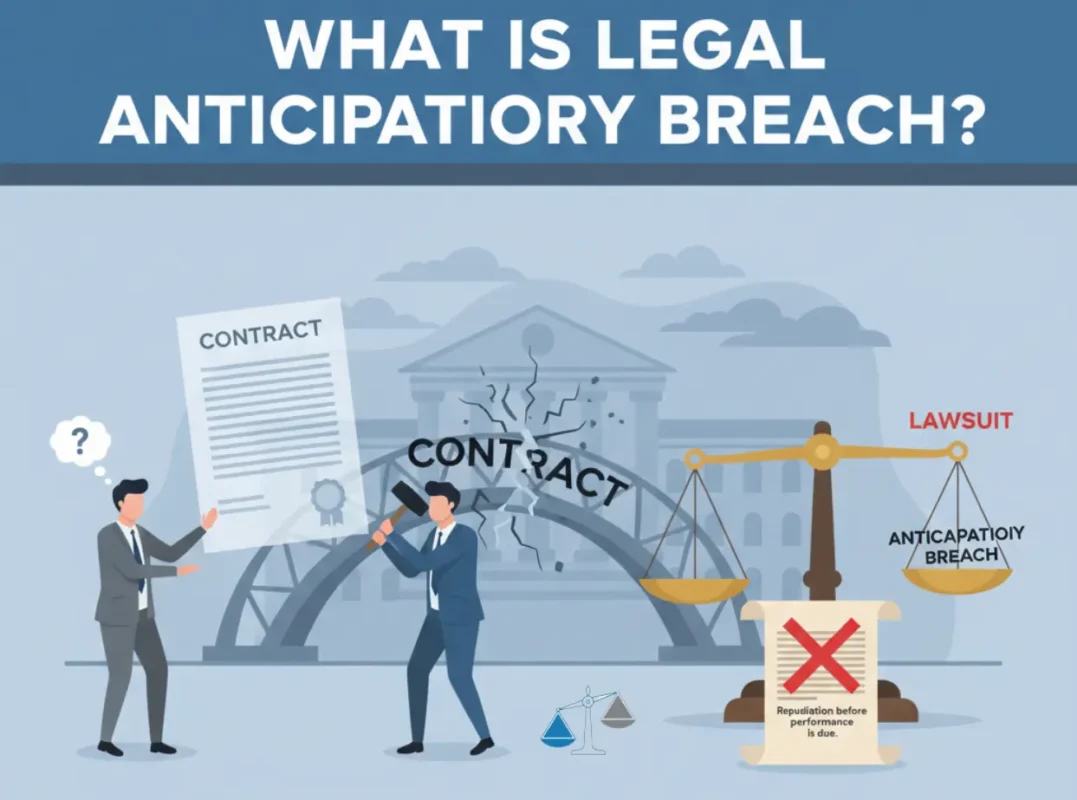Anticipatory Breach: Meaning and Simple Definition

Introduction
In contract law, not all breaches happen on the date of performance. Sometimes, one party clearly indicates in advance that they will not fulfill their contractual obligations. This situation is called an anticipatory breach, and it gives the other party immediate legal options.
Simple Definition
A legal anticipatory breach occurs when one party to a contract declares, either through words or actions, that they will not perform their obligations before the performance is due.
Real-Life Examples of Anticipatory Breach
- Supplier contracts: A supplier informs a business they will not deliver goods next month as promised.
- Employment agreements: An employee tells their employer they will not show up to work for a scheduled project.
- Construction contracts: A contractor openly states they will not finish the project on time, before the deadline arrives.
Importance of the Concept
Anticipatory breach is important because it allows the non-breaching party to act immediately rather than waiting until the due date. They can terminate the contract, sue for damages, or seek alternative arrangements, preventing further financial loss.
Comparison: Anticipatory Breach vs Actual Breach
Anticipatory Breach: Occurs before the time of performance, through notice or actions.
Actual Breach: Happens when the deadline arrives, and performance is not delivered.
| Feature | Anticipatory Breach | Actual Breach |
|---|---|---|
| Timing | Before performance is due | At the time of performance |
| Evidence | Words or conduct | Failure to perform |
| Remedy | Immediate action allowed | Action after non-performance |
FAQ About Anticipatory Breach
1. What does anticipatory breach mean in law?
It refers to a party clearly indicating before the due date that they will not fulfill their contractual duties.
2. How is anticipatory breach different from an actual breach?
Anticipatory breach occurs before performance is due, while actual breach happens when obligations are not met on time.
3. What can the non-breaching party do after anticipatory breach?
They may terminate the contract, sue for damages immediately, or wait until the due date to see if the breach occurs.
4. Does anticipatory breach need to be in writing?
Not always. It can be expressed through clear words or actions that demonstrate refusal or inability to perform.
5. Why is anticipatory breach important in contracts?
It protects the non-breaching party from unnecessary loss by allowing early legal remedies and replacement arrangements.
Closing
A legal anticipatory breach gives parties the ability to respond quickly when it becomes clear that a contract will not be fulfilled. By allowing immediate remedies, it helps protect business relationships, financial stability, and fairness in contractual dealings.






